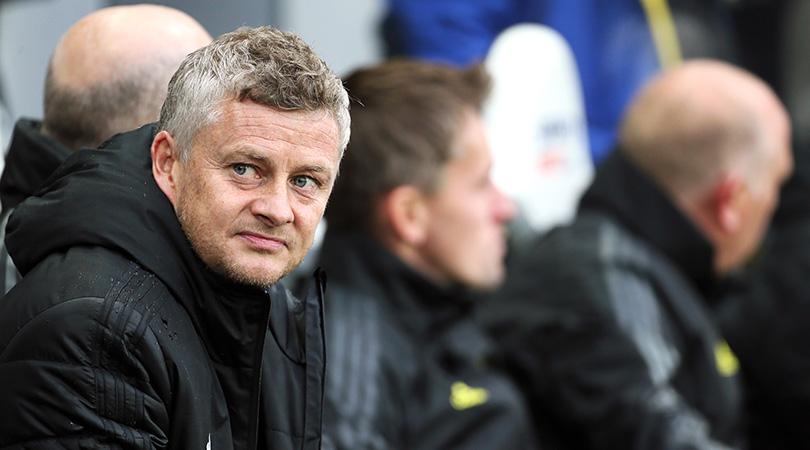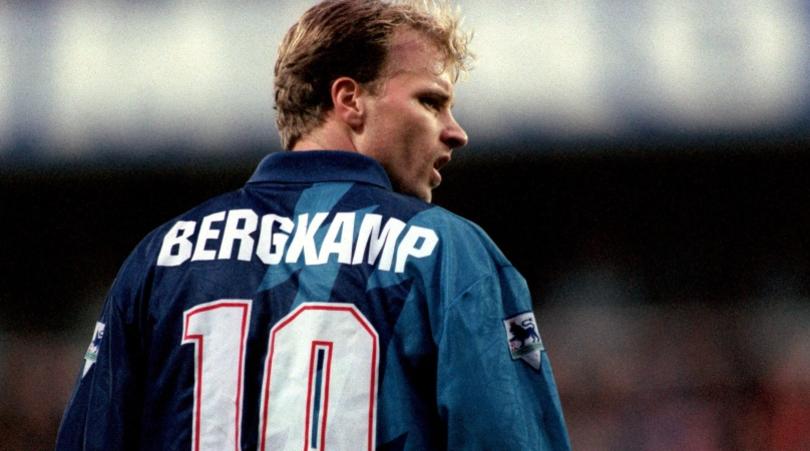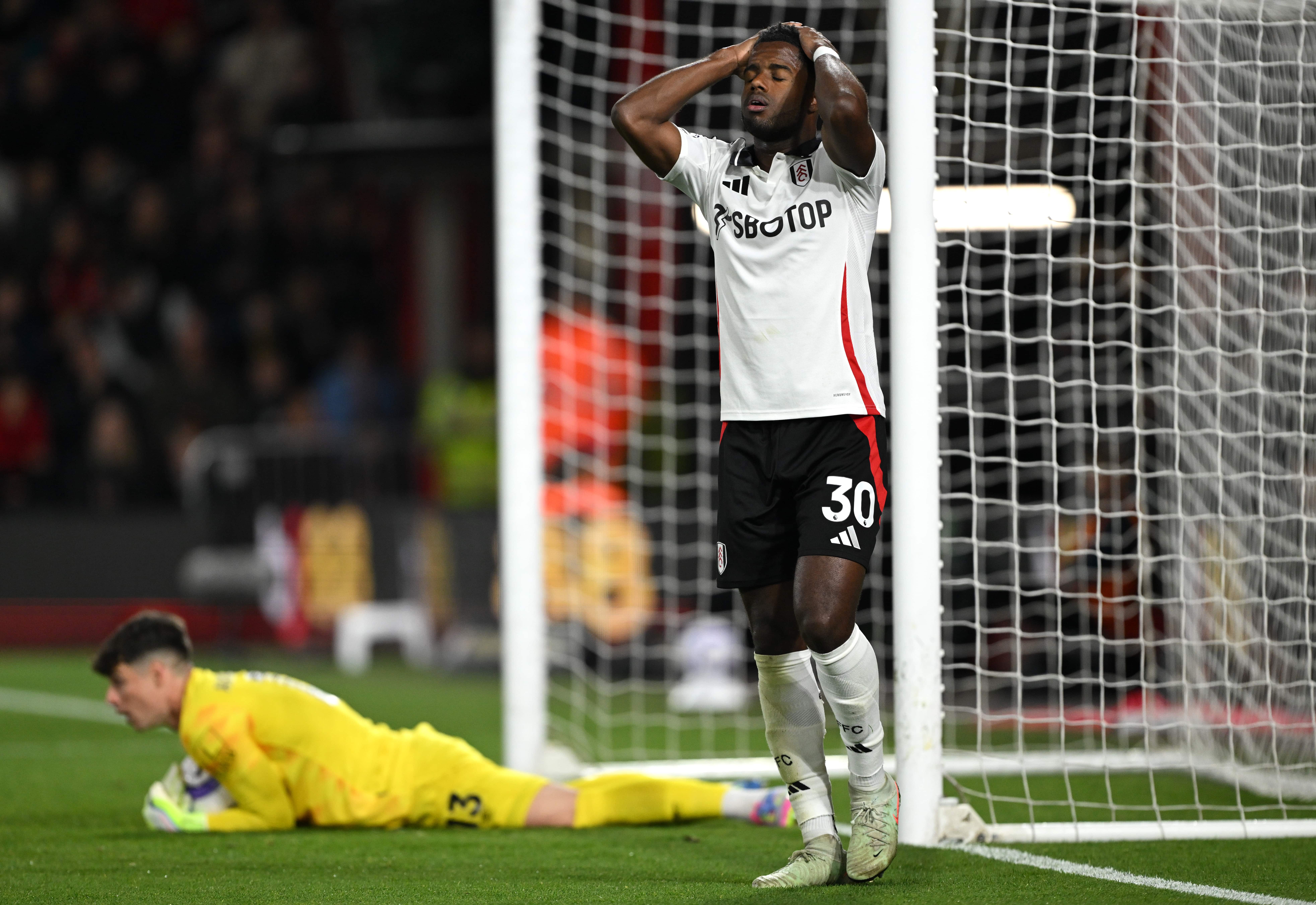Time and patience are only valuable if Manchester United don't waste both of them – as they're currently doing
It doesn't matter whether Ole Gunnar Solskjaer gets one, two or six transfer windows – if he's not the right man, United are halting their progress once again

Less than a year after Ole Gunnar Solskjaer’s interim appointment opened the windows at Old Trafford and sent fresh air rushing through the corridors, the stench of damp is back. As it was before Solksjaer arrived, Manchester United’s form has again become strangely impervious. No matter which players are picked and in what formation they line up, the differences are negligible.
Injuries have been offered as an explanation, and it’s true that United have been without some theoretically influential players. But presenting this team as an incomplete circle flatters them and ignores just how aimless a lot of their football has been over the past two months.
Even if Paul Pogba, Aaron Wan-Bissaka and Anthony Martial were available, the chances are that results would be much the same, even if the picture looked slightly different. That’s the ‘impervious’ quality. No matter which of this team’s components are swapped in or out, their performance always feels the same – slightly different songs, perhaps, but always played with the same dull notes.
So naturally, there are rumours about Solskjaer’s job. Mauricio Pochettino is a candidate, so is Max Allegri and most recently, Laurent Blanc. In response, United dedicated part of the international break to creating clarity. It’s been reported by several different journalists that Ed Woodward understands the size of the task ahead and that he will stand behind Solskjaer for the foreseeable future.
Poll running on https://t.co/8Fl4WTmv3a asking 'Would you change the MUFC manager right now?'
Yes. I can see no way that he will work. 16.39%
No. Give him more time. Most problems are not his making. 83.61%— Andy Mitten (@AndyMitten) October 14, 2019
Woodward is hunting intangibles, it seems; pursuing stability and consistency, and all of the other commodities preached by the game’s received wisdom. Within the same breath, however, he’s also promising investment; United have let it be known that they intend to sign eight players across the next two transfer windows.
Manna for the modern supporter, no doubt, because the transfer market is increasingly seen as the only root and source of improvement. But worrying, because that teenage fan's mentality appears to have infected Old Trafford too – unforgivably so, because United have now tried every type of transfer and really should know better by now. They’ve signed the established stars and the veterans, the young players and the left-field Brazilians who cost staggering amounts of money. And yet here they are, suffering through their worst start to a season in 30 years and, with terrible timing, are braced for bold, bullying Liverpool to come bounding over the horizon.
Signing new players will always be an accelerator of any team’s progress. It's not a first step, though. In itself, it's not an answer – and that does seem to be the prevailing fallacy at United, where the team’s deficiencies are always measured by listing the players that they don’t have.
Get FourFourTwo Newsletter
The best features, fun and footballing quizzes, straight to your inbox every week.
Addressing shortages may be critical, particularly in the arms race of the Premier League, but the step that United continue to overlook is that the transfer market is only of real use if it supplements what already exists – if money is spent, it should be to multiply an existing momentum.
And isn’t that the real problem? That there is no momentum... nothing in this field which is actually worth watering.
Many conclusions can be drawn from watching this side at the moment: it’s being well noted that they don’t defend particularly well, can’t create chances from open play and that they seem entirely reliant on their counter-attack. Their more discouraging tell is a subliminal one, though, revealed in comparison to other teams that have trodden this path.
In the beginning, there are always ideas. When a team is starting its climb it shows off new thinking - clumsily at first, but clearly enough to show what that side might become. That happened at Liverpool, at Pep Guardiola’s Manchester City, and at Tottenham when Mauricio Pochettino first arrived.
Maybe it’s an altered pressing game, or a different way of moving the ball. Perhaps it’s an unusual combination in a particular area of the pitch or a slightly mistimed third-man run. Whatever the specific manifestations, they appear before the money is spent. In fact they vindicate the spending, giving it a proper cause. Crucially, though, the transfer market is used to complement and encourage that fertility, not to create it.
United don't belong in that group. They haven’t exhibited anything new in months; they haven’t surprised anyone with any facet of their play in a very long time. They are entirely fallow in a way which Solskjaer doesn't seem able to change. He's a nice man, a very decent human being, but do his ideas about the game excite players? Does he inspire the sort of emotional investment from a squad which inspires the kind of change that United so obviously need?
If the answer is no, then that's a terminal situation.
So he may get an extra two transfer windows. Or four. Or eight. But it won’t matter. Time and patience are only valuable if they allow something worthwhile to mature. Money is only a virtue if it accentuates that evolution. Until Manchester United realise that neither represents the true beginning of a cycle, they’ll just continue to waste both.
While you're here, why not take advantage of our brilliant subscribers' offer? Get 5 issues of the world's finest football magazine for £5 – the game's greatest stories and best journalism direct to your door for less than a pint in London. Cheers!
NOW READ...
WONDERKIDS Who are the Golden Boy winners since 2003 – and what happened to them?
QUIZ! Can you name the last 50 players to make their England debut?
WATCH Premier League live stream 2019/20: how to watch every game from anywhere in the world
Seb Stafford-Bloor is a football writer at Tifo Football and member of the Football Writers' Association. He was formerly a regularly columnist for the FourFourTwo website, covering all aspects of the game, including tactical analysis, reaction pieces, longer-term trends and critiquing the increasingly shady business of football's financial side and authorities' decision-making.

